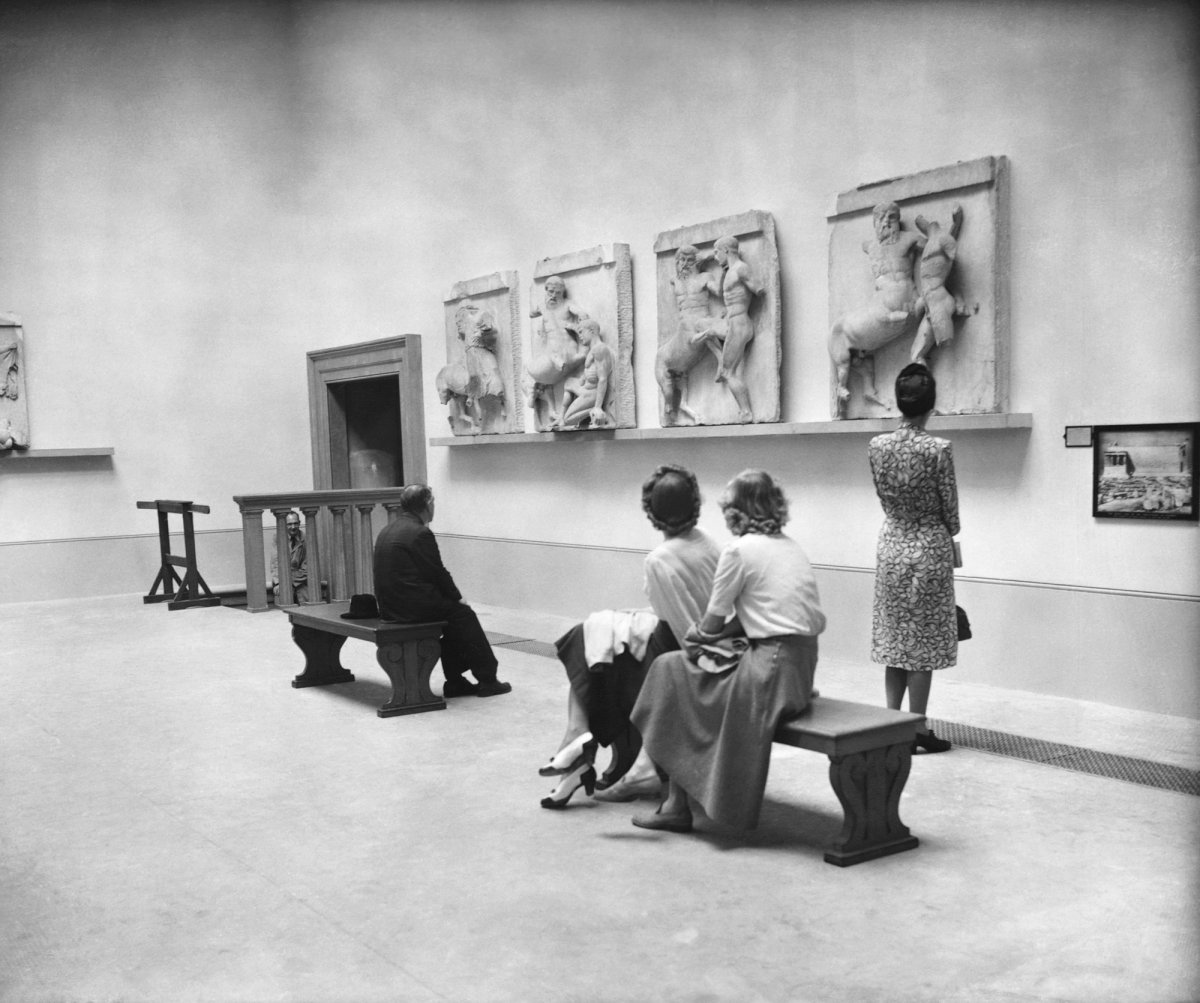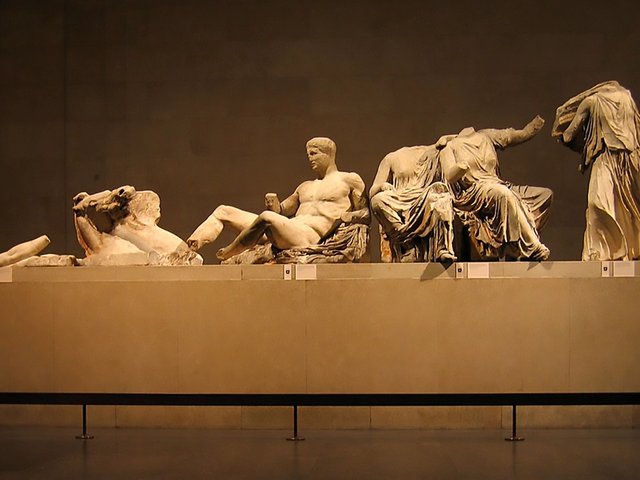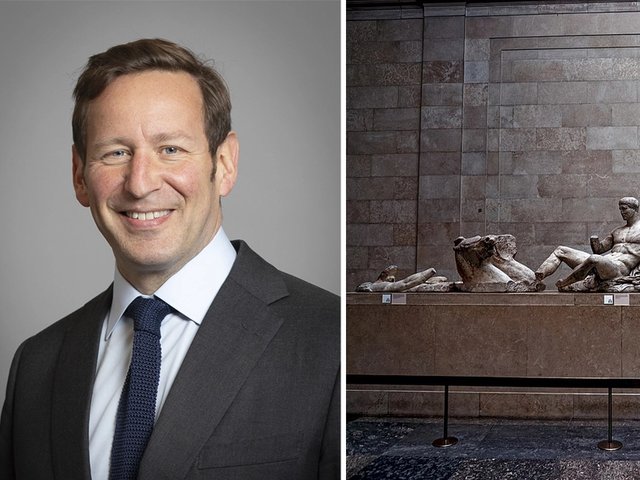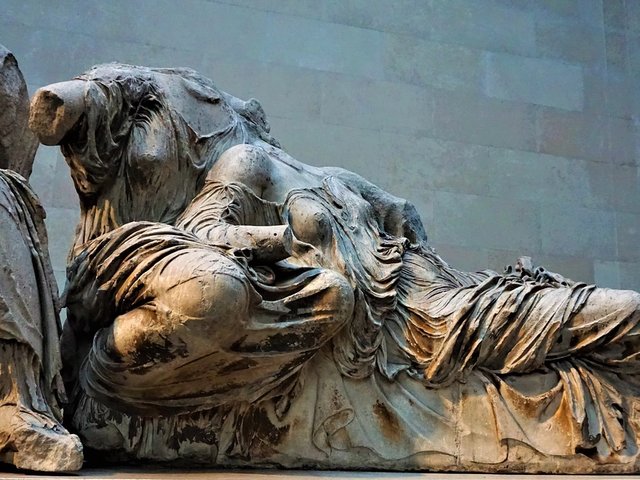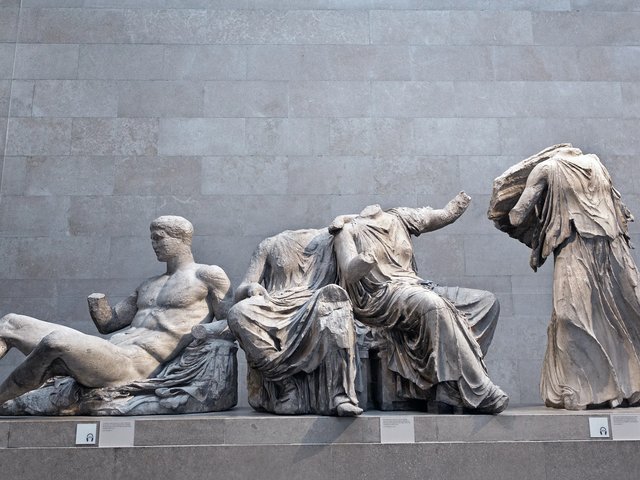Newly declassified documents have been released as the Greek prime minister Kyriakos Mitsotakis called again on the UK government for the return of the Parthenon Marbles, during a high-profile visit to his UK counterpart Boris Johnson on 16 November.
The previously confidential UK government file throws light on the question of whether the British Museum could restitute the Marbles, together with other antiquities and art. Under a 1963 Act of Parliament the museum is still prohibited from deaccessioning from its collection, other than in a few specific situations, such as if items are duplicates.
In 1991 the UK ambassador in Athens warned that the British Museum should not hide behind the act when it came to dealing with calls for the return of the Parthenon Marbles.
The declassified file deals with a 1991 visit to Greece by the then Conservative arts minister Timothy Renton. The issue of the Parthenon Marbles had already become highly controversial, following restitution calls in the 1980s by the Greek culture minister, Melina Mercouri. Half of the Marbles from the Parthenon had been bought by Lord Elgin and went to the British Museum in 1816.
David Miers, the British ambassador in Athens, played a key role in organising Renton’s 1991 visit. Immediately afterwards he wrote a report for the Foreign Office which was passed on to the Office of Arts and Libraries (a precursor to the government’s culture department).
Miers reported: “This is an issue on which we can never win: the best we can do is to keep our heads down as far as possible: and avoid using defensive arguments here in Greece which will sound hollow in Greek ears.”
The ambassador added: “For instance I do not think the argument about the trustees of the museum is a very good one for use here. The Greeks know that we could legislate [to allow deaccessioning] if we wanted: the problem for them is that we don’t want [to].” An official in London wrote “Important” beside this sentence.
A separate letter in the file argues that the Marbles would be safer in London than Athens. A foreign office official wrote that the British government cited “environmental concerns as further reasons for keeping the Marbles in their controlled environment in the British Museum”, in view of “severe air pollution in Athens”.
Half of the Marbles had remained in Athens, with many then affixed to the Parthenon and others taken down for conservation reasons. By 2009, when the new Acropolis Museum was opened in Athens, all had been removed and transferred to the museum for safe display.
Now, however, all is not well at the British Museum. As we reported last month, its Greek galleries have been closed for the whole of 2021 because of problems resulting from leaky roofs.
Today the British Museum is facing restitution calls for a much wider range of objects than just the Parthenon Marbles. These include Benin Bronzes from Nigeria, Maqdala items from Ethiopia, two Moai stone figures from Easter Island and an early Aboriginal shield from Australia.
A spokesperson for the British Museum says that in dealing with restitution issues, the institution is “wholeheartedly committed to respectful collaboration worldwide and working in partnership for the benefit of the widest possible audience”.
The recent meeting in London at 10 Downing Street between Kyriakos Mitsotakis and Boris Johnson—the first face-to-face meeting between the two leaders to formally raise the issue of the Marbles—underlines the fact that the Greeks still hold the UK government responsible for the continued presence of the Marbles in the British Museum.
However, a Downing Street statement reported that Johnson “said that he understood the strength of feeling of the Greek people on this issue, but reiterated the UK’s longstanding position that this matter is one for the trustees of the British Museum”.
The Guardian has reported that in 2012 Boris Johnson, then mayor of London, wrote a letter to a Greek official, George Hinos, to say that “in an ideal world it is of course true that the Parthenon Marbles would never have been removed from the Acropolis and it would now be possible to view them in situ”. But he ended his letter: “Much as I sympathise with the case for restitution to Athens, I feel that on balance I must defend the interests of London.”


